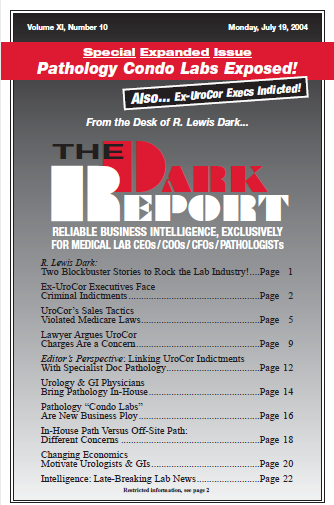CEO SUMMARY: We call ‘em pathology condominium laboratories. Other names are “pod labs” and “salon labs.” Whatever name is used, this new scheme by specialist physicians to capture pathology revenues may be the most significant threat to the anatomic pathology profession since the imposition of hospital DRGs more than 20 years ago. Here’s our exclusive …
Pathology “Condo Labs” Are New Business Ploy Read More »
To access this post, you must purchase The Dark Report.


